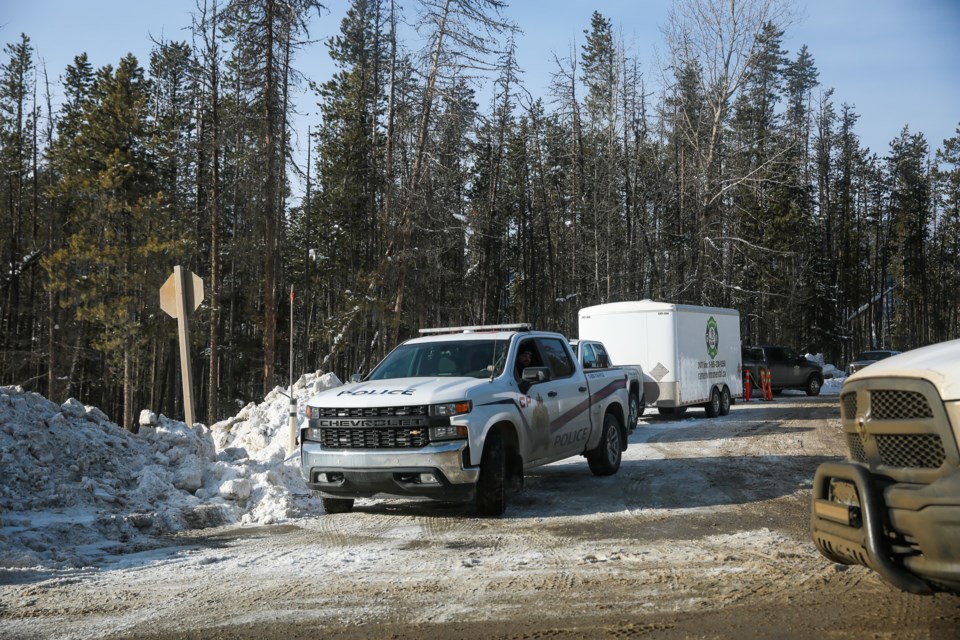FIELD, B.C. – Canadian Pacific Railway is undergoing a massive cleanup operation of spilled grain after 34 cars derailed from the tracks in Yoho National Park last week.
Parks Canada officials say the railway giant has been using vacuum trucks and backhoes with buckets to haul away the legumes, specifically yellow peas, from the derailment site, located about 10 kilometres west of Field.
Because grain is a calorie-rich source of food that draws bears to the train tracks each spring as they come out of hibernation, officials say CP will be required to do a reclamation plan and possibly set up an electric fence around the site.
“We’re on scene and we’ve dedicated a couple of staff members to support CP, monitoring wildlife,” said Dwight Bourdin, resource conservation manager for Lake Louise, Yoho and Kootenay.
“The bears aren’t out yet; they usually come out late March, so we’ll be assessing that need for electric fencing as well as a need to maintain an area closure at the site.”
The train derailment occurred on Jan. 26 at about 1:40 a.m. There were no injuries to the crew members on the train and the cause of the incident remains under investigation.
Bourdin said fortunately the derailment was mostly limited to CP’s right-of-way, away from any rivers or creeks, and the site is easily accessible through the Ottertail pit.
He said the cleanup operation is expected to take about six to eight weeks.
“Once the spring arrives, and the snow melts, we will see how much is left on the ground and if we need to add any additional mitigations,” he said.
“CP will have a reclamation plan that they will bring forward, as time goes on here, for any grain that might be sprouting.”
CP had to do a massive cleanup of grain following a fatal train derailment near the Spiral Tunnels east of Field in February 2019. A total of 99 cars and two locomotives came off the tracks, killing three crew members onboard.
In the last couple of years, a rare white grizzly bear and its sibling have sometimes frequented that grain spill site, but Bourdin said they haven’t typically wandered as far west as the site of last week’s train derailment.
“However, any bears, whether the white grizzly or any other bear, is a concern,” he said. “So we definitely want to maintain a presence for monitoring.”
In February 2019, there was a major grain train derailment in Banff National Park about seven kilometres west of Banff near Backswamp, in an area known as Mile 87 of the Laggan subdivision.
In that case, 21 cars came off the tracks across a 300-metre area, 11 of which were empty and another 10 carrying canola. That location is a hot spot for bears looking for an easy meal of animal carcasses and grain each spring.
Since 2000, at least 15 grizzly bears have been killed on the train tracks in Banff and Yoho national parks, which is a significant blow to Banff’s population of about 60 grizzlies.
Parks Canada has previously reported 18 grizzly bear deaths on the tracks in Banff and Yoho, but a second look at the statistics revealed that three of those occurred outside of the national parks.
The last death grizzly bear mortality was a well-known mamma bear known as No. 143 that was killed on the train tracks on Sept. 3, 2020 between Castle Junction and Lake Louise.
Salem Woodrow, a spokesperson for CP, said CP has been working closely with Parks Canada and contractors on a reclamation and remediation plan to efficiently clean-up the site.
Read more from RMOToday.com



